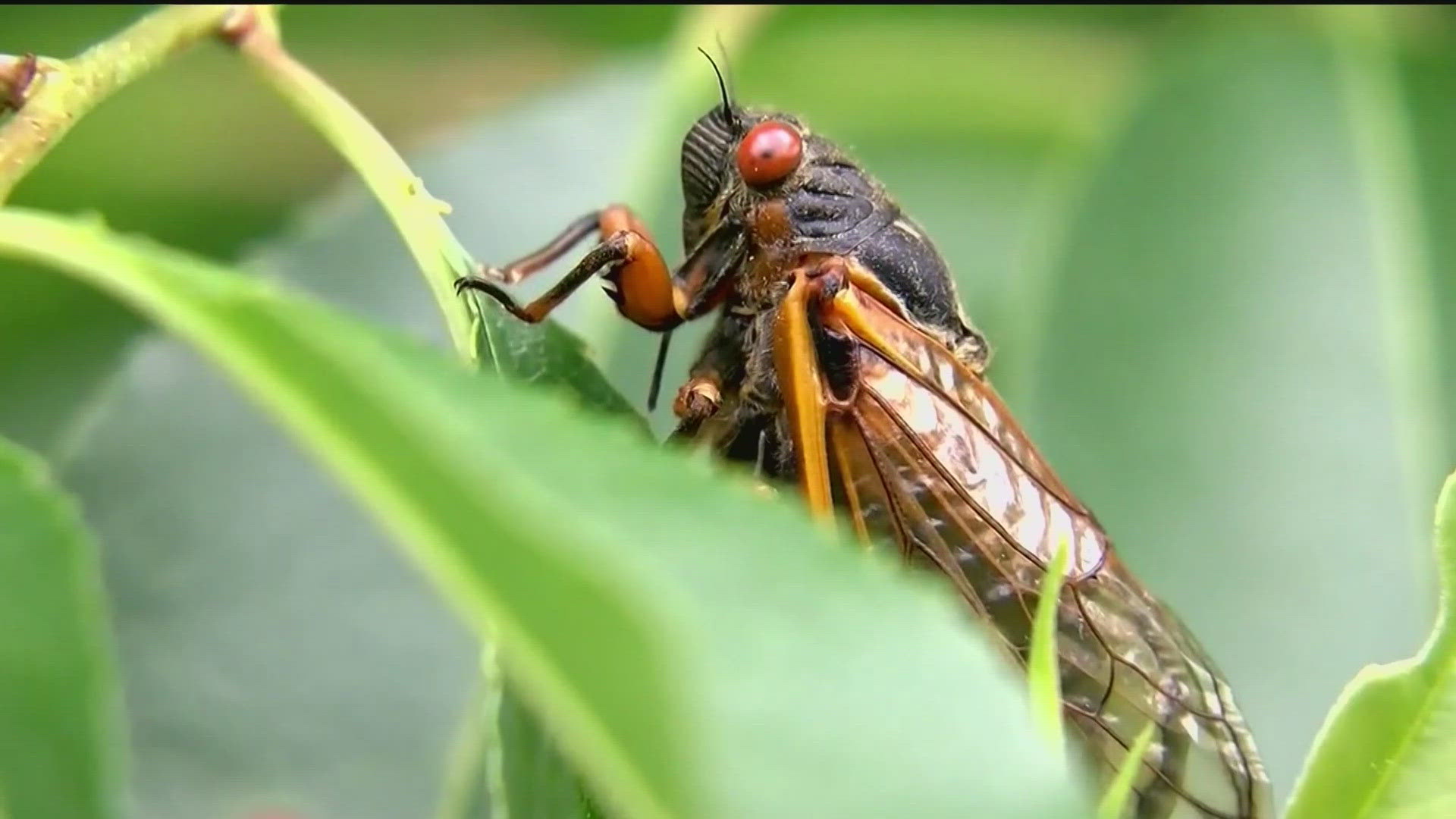GEORGIA, USA — For the past two weeks, some people have enjoyed -- and some have been annoyed -- by the hum of the periodic cicadas that are overrunning some parts of our area.
As it is about halfway through the above-ground lifecycle of this particular cicada emergence, a top Georgia entomologist guided 11Alive on a "cicada safari" around Rock Eagle between Madison and Eatonton to check on the latest movement.
It’s part of a 13-year cycle for this particular “Great Southern Brood.” The cicadas grow underground for 13 years, then emerge just to make the next generation of cicadas.
When they finally emerge above ground, Entomologist Dr. Nancy Hinkle said, "They're having sex."
That’s right; they grow underground, sucking on tree root sap for all of those years, only to live above ground for about a month. They come out of small holes around very old hardwood trees. They shed their skin, and they crawl or fly to the top of the trees to grow their population.
“The males sing to attract the females; they mate…the males then die. The females find a tree limb to lay their eggs…then the females die.”
When you hear the hum of the cicadas, it's actually the males singing to attract the females to the tops of the trees.
“To me the sound is like a background noise. It’s a hum, or soft roar," Hinkle said. It’s very soothing to me, I love it, but I can understand if you have a lot of cicadas around and they are calling it could be annoying.”
That hum will start to disappear soon.
The peak of this cicada emergence was Mother’s Day weekend. We are beginning to see more and more dead male cicadas on the ground. They typically fall out of the tops of the trees after breeding. Now, the females are laying their eggs.
“The eggs will hatch in about a month. The babies will fall to the ground and burrow into the soil and find a tree root and start sucking tree sap and live that way for 13 years," Hinkle stated.
Then, in 2037, those cicadas will emerge again and have the same fate as their parents.
Even though this Great Southern Brood won’t return for another 13 years, there is another smaller periodic cicada that will emerge next year in 2025. However, it won’t spread in as many areas and it won’t be as loud as this one.

